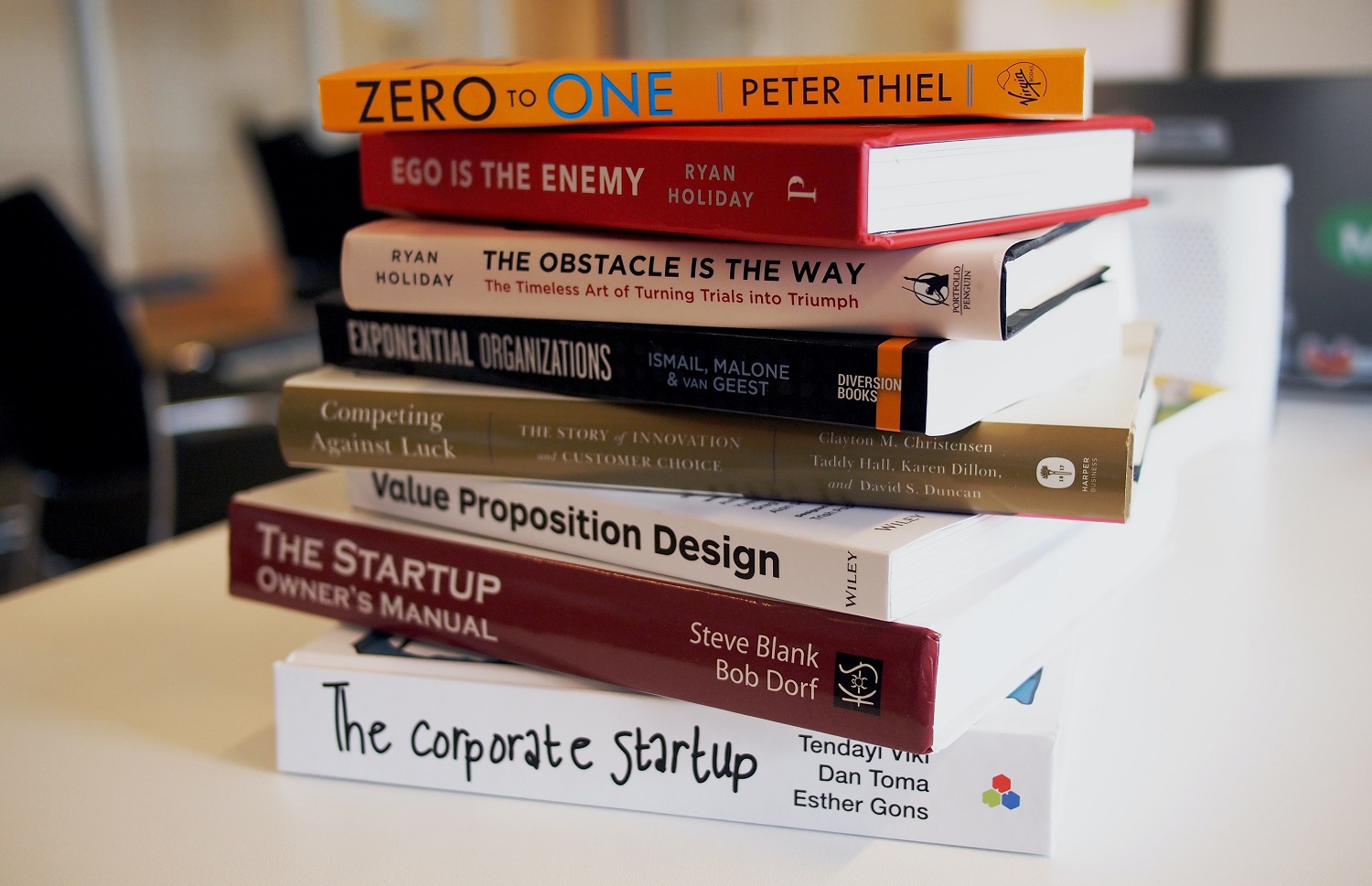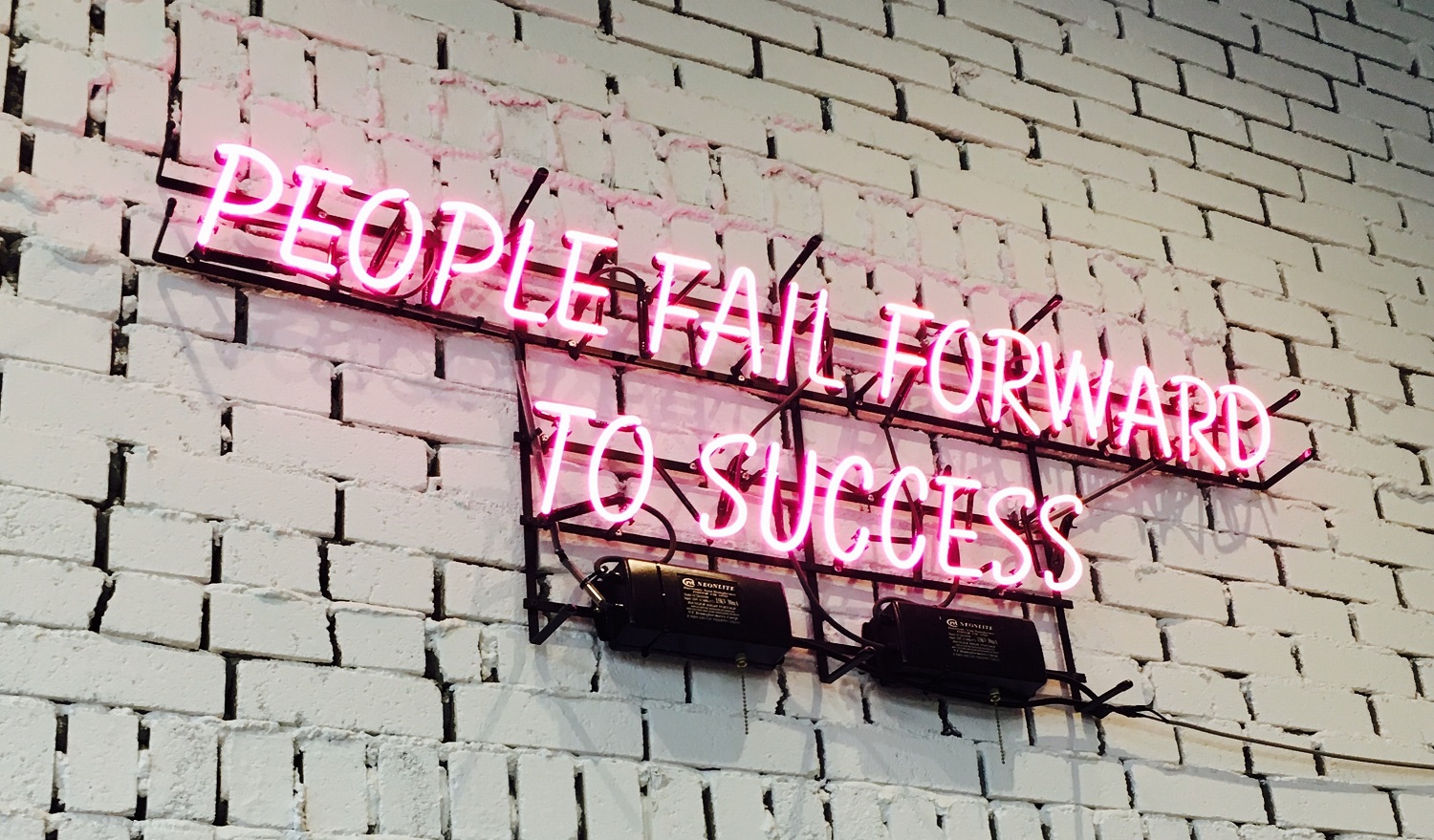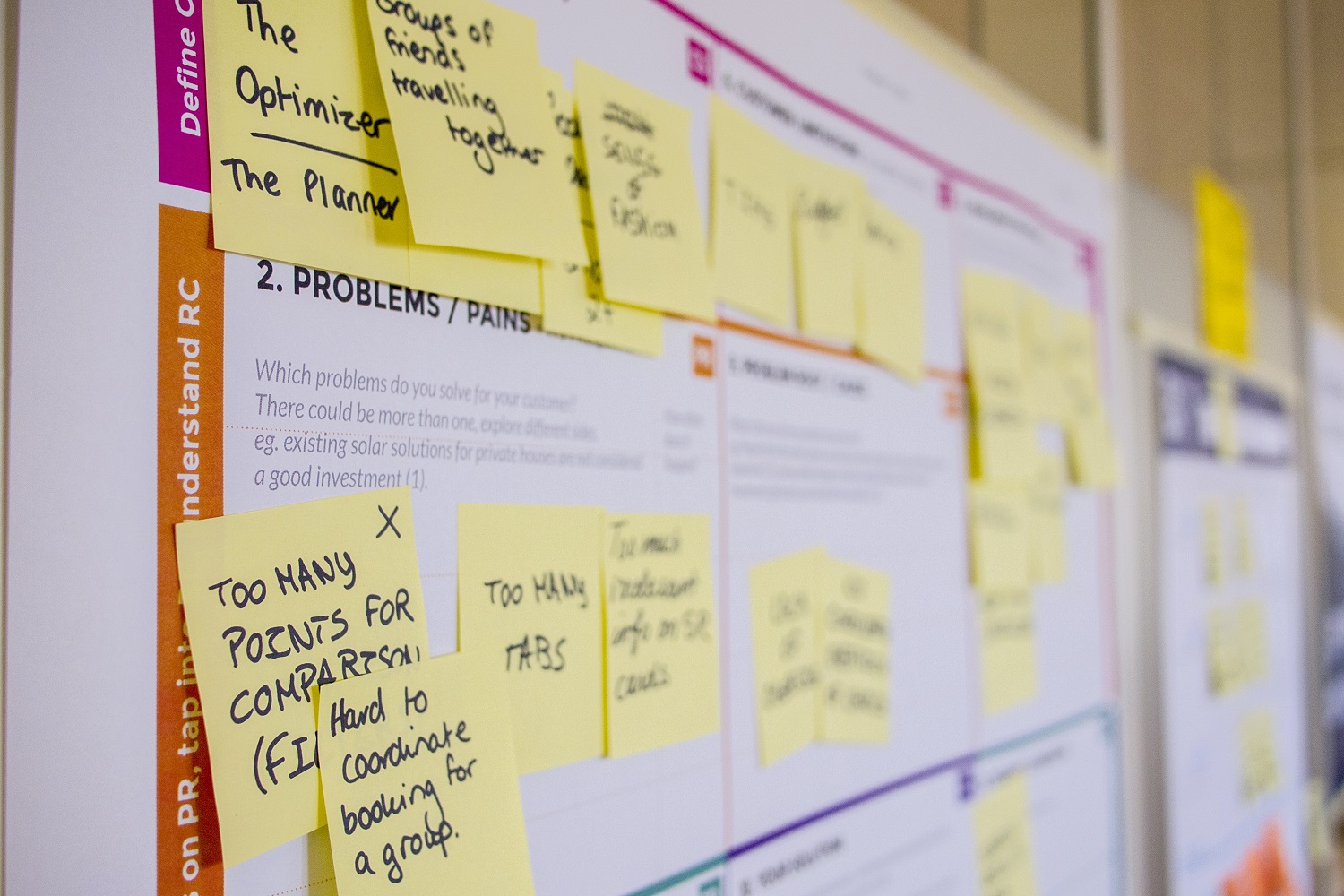Redefine Failure: Without Failures, There Are No Innovations
Roughly 50% of all small businesses fail within the first four years. Many of those failures belong to first timers who have limited entrepreneurial, business, or management experience. Even if you start with a fantastic idea and have a dedicated team to make it real, the external factors beyond your control and the lack of overall experience can cause your business to collapse.
However, there are still several startups being launched even in the toughest times – amid the COVID-19 pandemic crisis. What can we learn from the fearlessness with which these founders are innovating and creating as they enter the market for the first time? Or do they have a better perception of failure, somehow?
Redefine Failure: A Matter of Choice
Whatever we are pursuing in life, whether it is business, a new career, relationships, or whatever, there will be times when things do not work out as planned. But what if you started viewing them differently? What if you saw them as figments of your imagination – and nothing more? This failure we are all so afraid of is actually a choice. And we get to make the choice.
“Failure is an option here. If things are not failing, you are not innovating enough,” Elon Musk told SpaceX employees in the company’s early days, for instance.
First, recognize that sense of failure is self-created. It isn’t due to the fact that reality doesn’t align with our intended outcome. It’s our interpretation of that mismatch. Keeping this in mind helps create emotional distance between your results and how you choose to feel about them.

There have been studies showing the relationship between human’s fear of failure and their self-esteem. The fear of failure is actually not the fear of the challenges ahead or the trials that one may endure. It’s more of the fear of the negative consequences that come along with failure (the feeling of shame and embarrassment, the blow to self-esteem, the loss of social influence, and the fear of disappointing loved ones…)
Failure is just feedback showing us what’s not working so we can find out what will work. Learning from our mistakes is invaluable in life. Anyone who has achieved great things, anyone who has changed the world has, at some point, made a choice to embrace and redefine failure rather than let it hold them back.
“I have not failed. I’ve just found 10,000 ways that won’t work.”
– Thomas Edison
Many people are afraid to fail because failure makes us feel that we are not good enough. However, the most important thing to remember is that the more you fail, the better chance of success you’ll have in the future. Why? Because if you see failure as an experience, as a lesson learned, you will understand how things didn’t work at first.
Failure can also teach us things about ourselves that we would never have learned otherwise. For instance, failure can help you discover how strong a person you are. Failing at something can help you discover your truest friends, or help you find unexpected motivation to succeed. Often, valuable insights come only after a failure. Accepting and learning from those insights is key to succeeding in life.
Once you reflect on your failures, you’ll realize they are here to teach you a valuable lesson; a lesson that’ll help you reach your full potential. A business failure is just a brief stop on your path to success.
Even the Greatest Minds Once Failed
It’s almost impossible to go through life without experiencing some kinds of failure. People who do so probably live so cautiously that they go nowhere! But it’s easy to find successful people who have experienced failure, for example:
- Thomas Edison was told by his teachers that he is “too stupid to learn anything.”
- Bill Gates’ first business went belly up.
- Walt Disney once “lacked imagination.”
- Steve Jobs was fired from his own company.
- Warren Buffet, one of the world’s richest and most successful businessmen, was rejected by Harvard University.
- And Macy? He had seven flopped businesses before his department store chain achieved staggering success.

The list goes on and on, and it serves as a proof that the most successful people had to face failures at some point, only to become great achievers later on. So why exactly are we afraid of failure? And is it possible that failure is, in fact, our biggest ally and our ticket to success?
Setbacks in life are inevitable, most of us will stumble and fall in life. Doors will get slammed in our faces, and we might make some bad decisions. But you can choose to see them as positive lessons instead of demoralizing failures. Learn ways to deal with setbacks and obstacles so you can move forward and achieve your goals. Think of the opportunities you’ll miss if you let your failures stop you.
Understand How Fear Hurts & Helps
Fear stops us from starting businesses, taking the necessary steps we need to take, having hard conversations, expanding our businesses, making big decisions, and generally many of the things that matter to us. Fear causes us to self-sabotage our good intentions and prevents us from doing the things we want to do.
Our fear is often subconscious though – which makes it hard to identify. Plus, it’s etched into our DNA – we need a healthy dose of fear to keep us safe from real dangers. This makes it hard to surmount too – it can feel like going against our natural tendencies. (Don’t be fooled though, it was smart for our predecessors to be wary of tigers, famine, and fires but that’s not the same as being afraid of what people will think!)
Fear of failure stalks the world of the entrepreneur, from losing key clients to running out of money. For entrepreneurs, courage is not the absence of fear, but the ability to persist in spite of it. These fears are well-founded: Studies suggest that roughly 75% of ventures fail within 10 years. The secret is that every entrepreneur has had to face and overcome their own fears. Many of them are still doing this each day. They still have the fears, but they’ve learned how to handle them.
While “fail fast and often” is the constant refrain of the lean startup movement and many others, no one really wants to fail. Failure has many ramifications that it would be foolish to overlook or downplay, including potential bankruptcy, repossession of workers’ home, social stigma, and people losing their livelihoods. Most existing research has thus focused on failure as an inhibitor of entrepreneurship.

A survey on entrepreneurs shows a more nuanced picture: Fear can inhibit and motivate. Rather than simply stopping people from being entrepreneurial, fear of failure can also motivate greater striving for success. In fact, fear of failure is a temporary cognitive and emotional reaction to a threat to potential achievement. It is a state rather than a trait.
The research identified seven sources of fear:
- financial security
- ability to fund the venture
- personal ability/self-esteem
- potential of the idea
- threats to social esteem
- the venture’s ability to execute
- opportunity costs
Not all fears are created equal. The source of the fear is important. Worries concerning opportunity costs, personal financial security, or ability to obtain funding for the venture were all positively associated with an entrepreneur’s persistence in pursuing their goals. Thus, if entrepreneurs contemplated the choice they had made in pursuing their venture, and how this necessitated missing out on other opportunities, whether in their professional or personal lives, they were more motivated to carry on with the venture. Similar positive effects on persistence were observed for financial concerns — either personal financial security or the ability to obtain financial support for the venture. In each case, rather than inhibiting behavior, these sources of fear drove greater effort.
In contrast, when entrepreneurs worried about the potential of their idea or their personal ability to develop a successful venture, they tended to be affected more negatively and become less proactive. Numbers are crunched remorselessly, resulting in paralysis through analysis. Decision making is slowed down as all possible data is sought and the avoidance of making a wrong decision becomes the primary driver.
“Instead of being on the phone trying to get a customer, you are sitting there talking about why we need to call more customers, why we don’t call customers anymore, or why we should start emailing them. So, you are talking about it and not doing it,” one entrepreneur confessed.
Fear of failure can also change the nature of goals that entrepreneurs set for themselves. Where fear of failure is greater, they may select either easier, readily achievable objectives or wildly impossible goals. (Ironically, selecting impossible goals allows us to more easily rationalize our failure to achieve them.) Either way, fear has the effect of undermining effective personal goal setting.
Strategies to Conquer the Fear of Failure
#1: Take A Step Back and Evaluate
The best way to conquer this fear is to first realize that the fear itself is not real. Fear is simply a reaction based on a belief that you hold. The reason you have this phobia is simply because you have an underlying belief that failure is a bad thing.
When something is about to make you nervous, take a step back and evaluate the situation. Some questions to ask yourself:
- What is the problem?
- Are you the only person facing this problem in the world today?
- How does this problem look like at an individual level? A national level? On a global scale?
- What’s the worst possible thing that can happen to you as a result of this?
- How is it going to impact your life in the next 1 year? 5 years? 10 years?

Even though the situation may be frustrating, you’re not alone. Remember there are almost 8 billion people in the world today, and chances are that other people have faced the same thing before too. Realizing this fact can help you get out of a self-victimizing mindset. Doing this exercise is not to undermine the problem or disclaiming responsibility, but to consider different perspectives, so you can adopt the best approach for it.
In her article, “How to Overcome Your Fear of Failure,” author Susan Peppercorn suggests creating a checklist of what you are afraid to do and what you fear will happen if you do it. Write down the benefits of the attempted effort and also the cost of doing nothing. Walking away from an opportunity may be far more harmful than stepping outside your comfort zone to pursue it.
Another strategy to consider is to restate your list of what you are afraid of. For example, if you are afraid of leaving a job you hate, you could restate it as, “I want to leave this job I hate to pursue my dream, and I scare myself by imagining I would go bankrupt and lose my house.” You can see how YOU are the one creating the fear here. Once again, you are focused on a future outcome that may never happen.
#2: Have A Thorough Plan A and Don’t Forget Plan B
To embrace failure as your “teacher,” you first need to learn how to properly react to it. Pretending it never happened will not help. In fact, you should focus on it, analyze it, and use the information you collected to your advantage. Come up with a strategy that will help you do things differently next time.
We begin to worry and over analyze situations when we don’t have detailed and well-thought-out plans for our life. Set extremely clear goals with a detailed plan on how to achieve those goals. After you have a well detailed plan, take action. Taking action towards meaningful goals helps to relieve stress and gives you a huge sense of enjoyment. Fear creeps in and paralyzes us when we don’t take the time to plan our lives.
Sometimes the fear of failures comes from this question: “What will happen to me if this plan fails?” Then, this belief: “If this plan fails, I’ll be doomed and I’ll have nowhere to go.” A good way to combat this fear of failure is to have a Plan B, also known as a contingency plan. An alternative you can switch to if your original plan fails. Knowing that you have somewhere to turn to when your original plan fails will make you more confident and assured to take the risk.
Not just that, in order to make good plans, you have to continuously educate yourself. We are afraid of nothing so much as the unknown. If your fear is based on a lack of information, then get the information or knowledge you need to examine the situation based on facts rather than speculation.
#3: Focus on The Positive Energy of The Desired Outcomes
Author, Warren Berger, in his article, “What Are You So Afraid of?” suggests focusing on the desired outcome and the energy surrounding that rather than the actual thing that is inducing the fear. That outcome may be a personal benefit or involve having a positive impact on others.
Stop sabotaging yourself! The fact that you’re facing an impending failure means you’re actually challenging yourself and trying things out of your comfort zone, and that in itself is already a brave and awesome thing! View failure as a learning experience and see your situation in a positive light. This will not only make things easier for you, but it will help build your self-confidence as well.
One last reminder: Take one small step at a time. The fear of failure is difficult to flush out of our system, but take it easy, be kind to yourself, and build your confidence one step at a time.
Bottom Lines
We can choose to see failure as “the end of the world,” or as proof of just how inadequate we are. Or we can look at failure as the incredible learning experience that it often is. Every time we fail at something, we can choose to look for the lesson we’re meant to learn. These lessons are very important; they’re how we grow, and how we keep from making that same mistake again. Failures stop us only if we let them.









